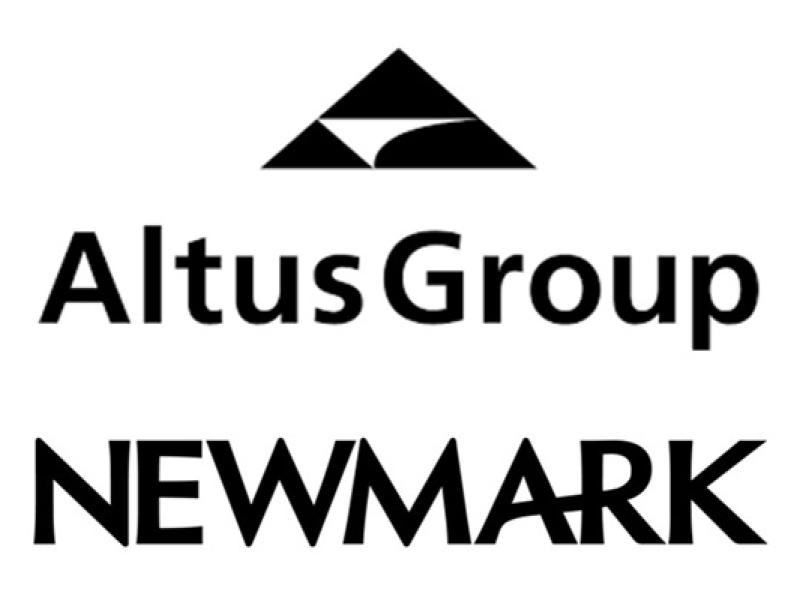
Firm Capital Property Trust has acquired this two-building, 128-unit apartment complex in Edmonton. (Courtesy FCPT)
Firm Capital Property Trust (FCPT) has acquired two multiresidential properties, with a combined five buildings and 260 units, in Edmonton and Lower Sackville, N.S., for $43.2 million.
FCPT (FCD-UN-X) will own 70 per cent of both properties, while private clients affiliated with members of its senior management team and board of trustees will own the remaining 30 per cent.
“A few members of our management team and board of trustees have always been real estate investors,” FCPT president and chief executive officer Robert McKee told RENX. “We originally set up this structure for retail investors to co-invest alongside management and our trustees.
“We think that it brings in an extra layer of diligence and oversight because we have people that are actually cutting a cheque to invest in the asset.”
Edmonton acquisition
The Edmonton property, with 128 units in two buildings, was acquired from an institutional owner for approximately $25 million.
It was built in 2012 and is located in the southern part of the city in the Summerside neighbourhood, which features several schools, medical clinics, religious centres, gyms, daycares and other amenities.
The apartment is 98 per cent occupied.
It’s being financed with FCPT’s own equity and a new $17-million mortgage with a Canadian chartered bank with an interest rate of approximately 2.5 per cent, a term of five years and a 30-year amortization.
“We’ve been buying some industrial in that market and we have a little bit of retail in the market with First Capital and Crombie (REIT),” said McKee.
“We have an existing property management platform in Edmonton and we do like that market and think it’s attractive from a valuation perspective versus the risks of other residential markets in Canada.”
Lower Sackville acquisition
The Lower Sackville property, with 132 units in three buildings, was acquired from a private family for approximately $18.2 million. It was built in the early 1990s and is in close proximity to the trust’s existing multiresidential properties in Dartmouth, N.S.
McKee said FCPT wanted to make more investments in the area, but couldn’t find the right opportunity until now.
The apartment has had an occupancy rate of 98 per cent or higher since 2018. It’s being financed with FCPT’s own equity and a new $13.7-million mortgage with a Canadian chartered bank with an interest rate of approximately 2.5 per cent, a term of five years and a 30-year amortization.
No deferred maintenance is required for either the Edmonton or Lower Sackville properties, according to McKee.
Firm Capital and FCPT’s 2020 performance
Firm Capital was formed in 1988. Through its various affiliates, it operates as a boutique alternative private equity real estate firm with proprietary capital in partnership with various capital pools, partnerships, private and public equity funds.
It has approximately $3.5 billion in mortgage and real estate-related assets under management.
FCPT has a diversified portfolio of multiresidential, flex industrial, net lease convenience retail and core service provider professional space.
When FCPT issued its 2020 year-end results on March 12, it had 76 commercial properties with a total gross leasable area of 4.25 million square feet (2.35 million on an owned interest basis) and interests in two apartment complexes comprised of 204 units.
Commercial occupancy was 94.5 per cent, while residential occupancy was 95.6 per cent. FCPT collected 96.5 per cent of gross rents.
“We were relatively pleased with how rent collections went and overall how our portfolio performed, given the extent of the lockdowns that happened throughout the year,” said McKee.
FCPT’s portfolio is defensive in terms of geographies and asset types, with 59 per cent of net operating income (NOI) comprised of grocery-anchored retail, followed by industrial with 22 per cent of NOI.
“The grocery-anchored retail and convenience retail portfolio performed exceptionally well,” said McKee. “We saw significant rental growth across our industrial portfolio in Waterloo and Montreal on renewals and new deals.”
No tenant accounts for more than 11.4 per cent of FCPT’s total net rent. The top 10 tenants are comprised of large national companies and account for 29.9 per cent of total net rent.
FCPT acquired a 50 per cent interest in two industrial properties in Edmonton and Leduc, Alta. in March 2020. The total square footage was 90,420, and the price was $10.7 million for 100 per cent of the property.
“We were very conservative from an acquisition standpoint,” McKee said of 2020. “We wanted to get comfortable and see where things were going, so we didn’t make many acquisitions.”
Looking forward
FCPT plans to strategically focus its near-term acquisition efforts on industrial and multiresidential properties across Canada by reducing exposure to its non-core retail assets. It has sold three properties and another 10 are under contract and expected to close through 2021.
FCPT expects to identify more non-core retail assets to sell and plans to redeploy the proceeds from those dispositions into industrial and multiresidential properties this year.
“We would like to increase our industrial exposure, but it’s been a very pricey asset class so we haven’t seen things on a pricing basis that have met our risk-return expectations,” said McKee.
“We haven’t been as active as we’d like to be on that front, but we continue to work hard to find opportunities that make sense.”
McKee said the full impact of COVID-19 on FCPT and its tenants likely won’t be realized until after government assistance programs end.
“We’re watching that closely but, given the nature of our assets, we’re not overly concerned that it’s going to have a significant impact on a material number of our tenants.”











